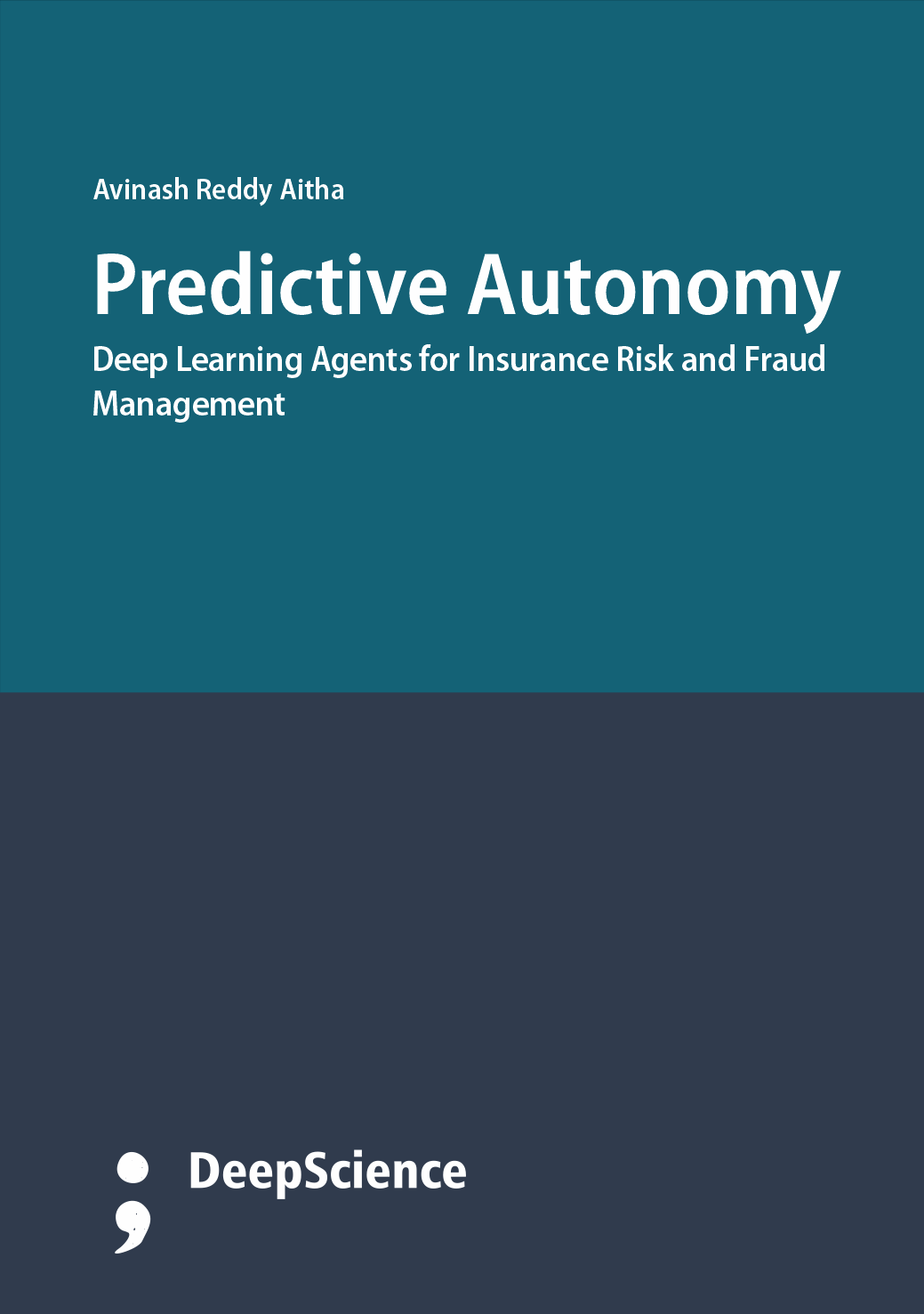Predictive Autonomy: Deep Learning Agents for Insurance Risk and Fraud Management
Keywords:
Artificial Intelligence, Machine Learning, Deep Learning, Data Analytics, Big Data, Decision Support Systems, Optimization AlgorithmsSynopsis
In an era defined by digital transformation, the insurance industry stands at a critical intersection of innovation, data, and trust. Predictive Autonomy: Deep Learning Agents for Insurance Risk and Fraud Management explores this intersection by examining how the next generation of intelligent systems—powered by deep learning, agentic AI, and cloud-native automation—can reshape the way insurers assess, predict, and mitigate risk.
The evolution from traditional rule-based analytics to autonomous, data-driven intelligence marks a profound shift in the operational and ethical landscape of insurance. Deep learning algorithms are no longer passive tools that merely detect anomalies; they are becoming proactive agents capable of self-learning, decision-making, and adaptation in dynamic market and fraud environments. This transformation demands not only technical innovation but also a rethinking of governance, transparency, and human oversight in AI-driven ecosystems.
This book presents a comprehensive framework that connects predictive modeling, real-time automation, and explainable AI into a cohesive strategy for modern insurance enterprises. It delves into how generative and agentic models can identify emerging fraud patterns, forecast customer behavior, and manage risk with unprecedented precision. Through the integration of data engineering, DevOps practices, and cloud-native infrastructures, these intelligent agents operate seamlessly across distributed systems—ensuring scalability, reliability, and continuous learning.
Readers will gain both conceptual understanding and practical insight into the architecture, design, and deployment of autonomous AI in insurance operations. The discussions span from algorithmic foundations in deep learning and reinforcement learning to real-world case studies illustrating the measurable benefits of predictive autonomy—reduced claim leakage, improved fraud detection accuracy, and enhanced customer trust.
Ultimately, Predictive Autonomy is not just about technology; it is about enabling a new paradigm of intelligence that augments human judgment, supports ethical decision-making, and strengthens the financial resilience of institutions. This work is intended for researchers, data scientists, actuaries, and industry leaders who envision a future where artificial intelligence operates not only predictively—but responsibly and autonomously.
Chapters
-
Introduction to Predictive Autonomy
-
The Evolution from Automation to Agentic AI
-
Deep Learning Foundations for Intelligent Decision-Making
-
Architecting Cloud-Native AI Ecosystems
-
Data Engineering for Risk and Fraud Intelligence
-
Building and Training Autonomous Deep Learning Agents
-
Generative AI in Predictive Risk Modeling
-
Real-Time Fraud Detection through Agentic Systems
-
Integrating DevOps for Continuous AI Deployment
-
Ethical, Legal, and Regulatory Dimensions of Predictive AI
-
Case Studies in Insurance Risk and Fraud Management
-
The Future of Autonomous Intelligence in the Insurance Industry
References
Rosendo D, Costan A, Valduriez P, Antoniu G. (2022). Distributed Intelligence on the Edge-to-Cloud Continuum: A Systematic Literature Review. Journal of Parallel and Distributed Computing.
Sheelam, G. K. (2025). Agentic AI in 6G: Revolutionizing Intelligent Wireless Systems through Advanced Semiconductor Technologies. Advances in Consumer Research.
Asim M, Wang Y, Wang K, Huang P-Q. (2020). A Review on Computational Intelligence Techniques in Cloud and Edge Computing. arXiv preprint.
Meda, R. (2025). AI-Driven Demand and Supply Forecasting Models for Enhanced Sales Performance Management: A Case Study of a Four-Zone Structure in the United States. Metallurgical and Materials Engineering, 1480-1500.
Tuli S, Mirhakimi F, Pallewatta S, et al. (2022). AI-Augmented Edge and Fog Computing: Trends and Challenges. arXiv preprint.
Inala, R., & Somu, B. (2025). Building Trustworthy Agentic Ai Systems FOR Personalized Banking Experiences. Metallurgical and Materials Engineering, 1336-1360.













